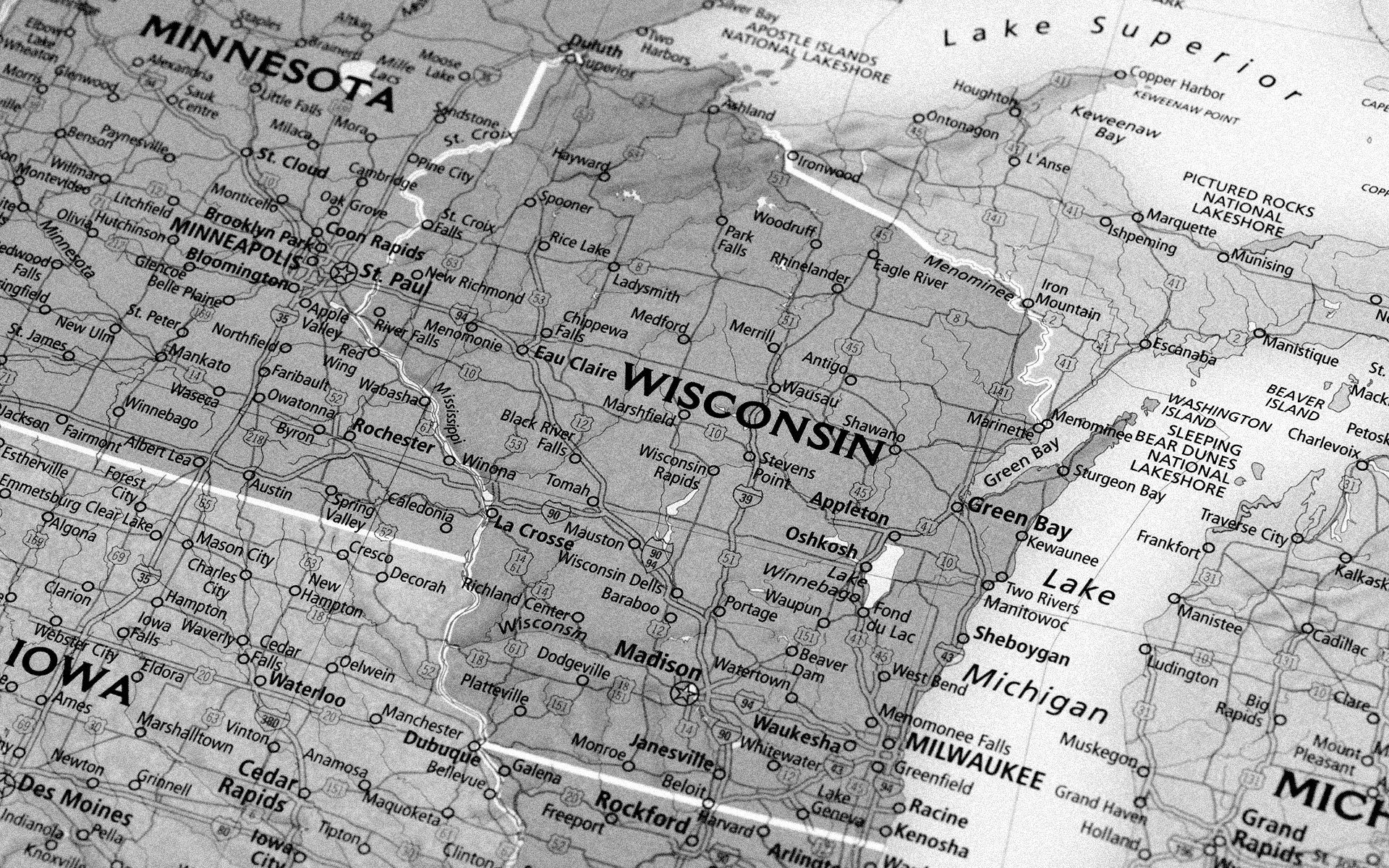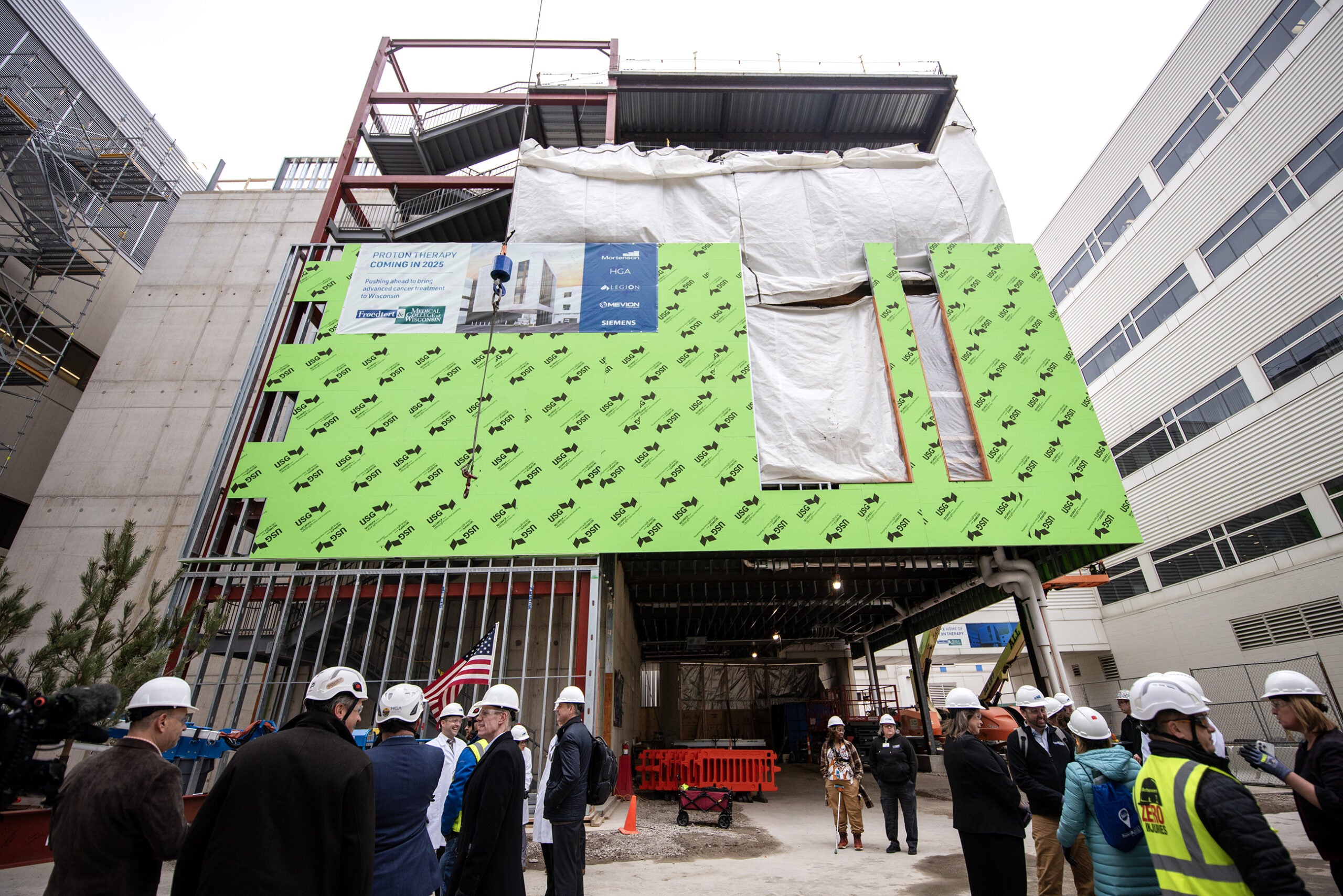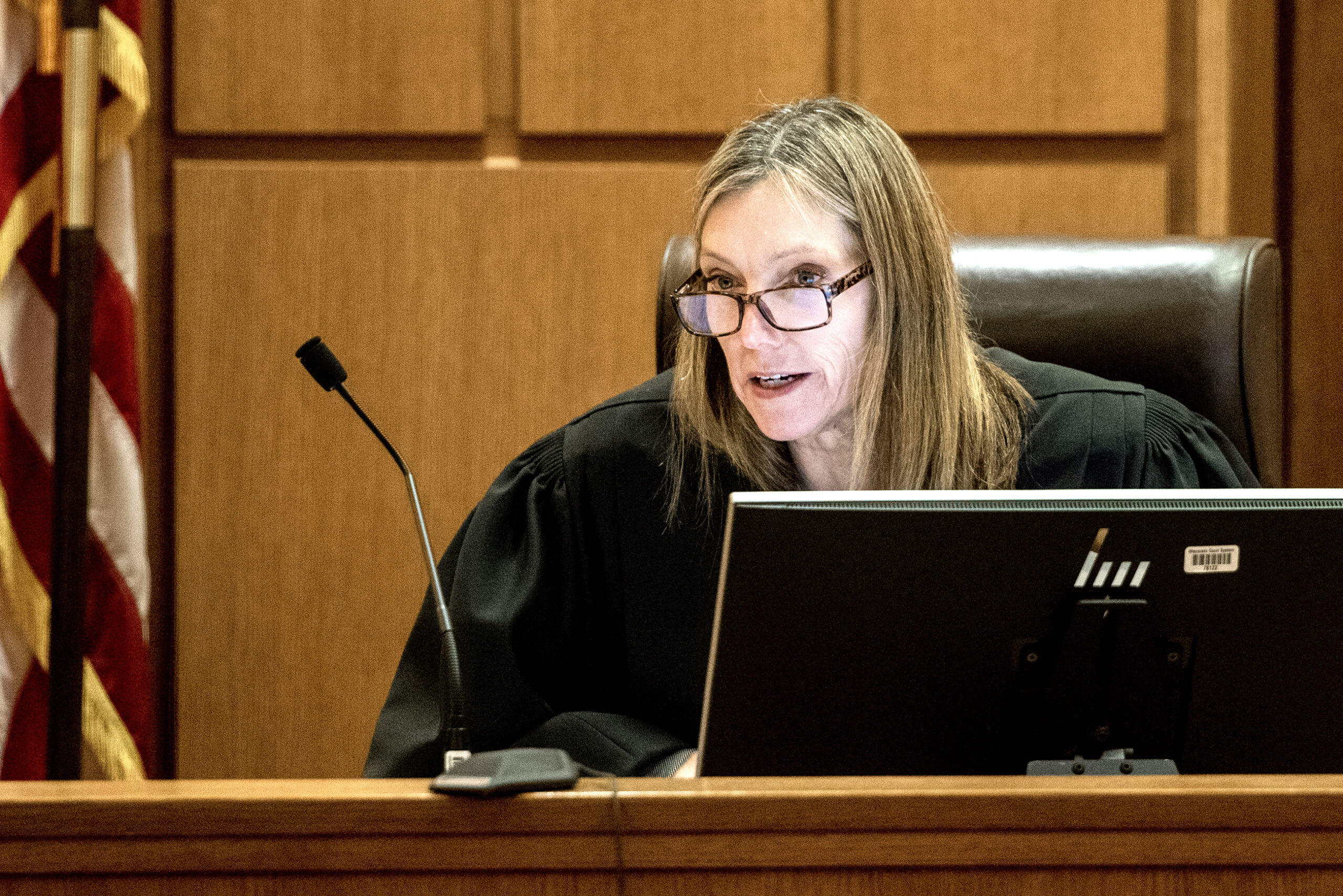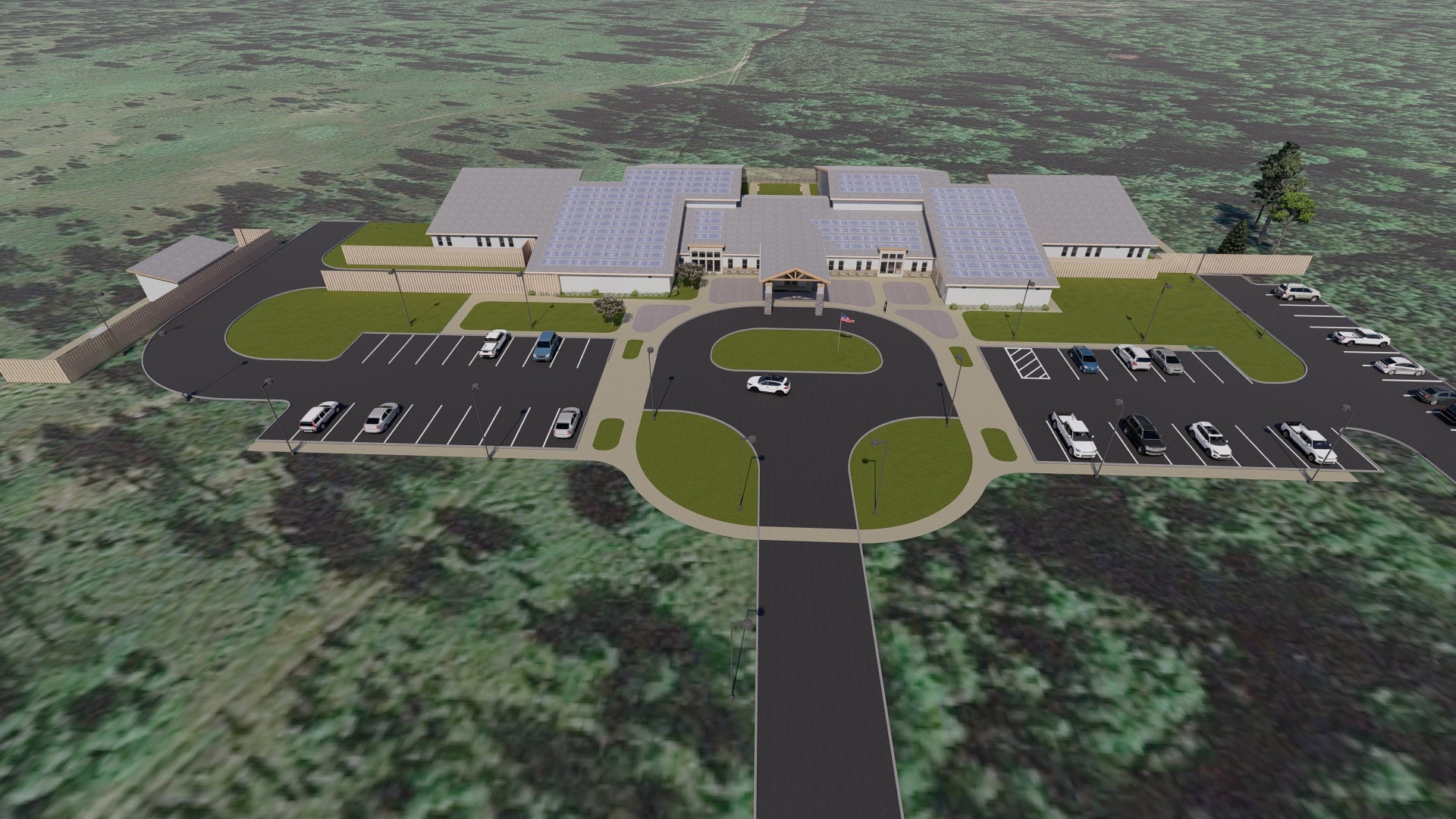Jerry Seitz — like many in Wisconsin — knows what it’s like to struggle with alcohol and drug addiction.
Two decades of dealing with substance abuse nearly ended his life. After an attempted suicide, Seitz got sober. And for the last 15 years, he’s put everything he overcame into motion as a substance abuse counselor at Memorial Medical Center in Ashland.
Stories like Seitz’s aren’t uncommon in Wisconsin — which has the second-highest rate of alcohol dependence in the nation, according to federal data. But oftentimes, when people seek treatment, the level of care they can expect largely depends on where they live and how much money they make.
Stay informed on the latest news
Sign up for WPR’s email newsletter.
State estimates suggest fewer than a quarter of those needing alcohol and drug treatment got it in 2015, and the numbers were even lower in many rural counties facing the biggest alcohol-related problems.
Seitz is an organizer of the volunteer group Partners in Recovery-Chequamegon Bay, which hosted an open house at the city’s first alcohol and drug free drop-in center on Feb. 16. He said they chose this night because it coincided with an annual ski race called Book Across The Bay, which draws thousands to the bars of Ashland and nearby Washburn.
“One of the things that we decided to do is open this drop-in center and hopefully, it’s going to help support people in early recovery and kind of bridge the gap from treatment to finding jobs,” Seitz said after the open house. “You know it’s very difficult for a lot of people in trying to get their lives back.”
Seitz said many of the clients he sees from the Ashland area are suffering from a chronic substance abuse disorder, meaning their addiction to alcohol and drugs has left them homeless, unemployed or both. He also said their withdrawal symptoms are severe enough that they can’t quit on their own.
According to the latest data available from the state Department of Health Services, there were 523 alcohol-related hospitalizations in Ashland County between 2013 and 2014. While Memorial Medical Center offers inpatient detoxification services, there aren’t any residential treatment facilities within 80 miles. Seitz said that means people in northern Wisconsin are suffering as a result.
“I would say a majority of my clients could benefit from a higher level of treatment such as inpatient or residential,” said Seitz. “I think that’s one of the biggest struggles in this area. We don’t have the availability to treat the patient by their needs.“
Clients at residential or inpatient treatment programs generally live among others in recovery for around 30 to 45 days while getting intensive, daily counseling. There are 43 such facilities in Wisconsin, according to data from the Substance Abuse and Mental Health Services Administration, but nearly all of them are in places like Milwaukee, Madison, Eau Claire and the Fox Valley. For other, mostly rural parts of the state, treatment for drugs and alcohol is generally limited to weekly meetings with substance abuse counselors.
“We try to do the best we can,” Seitz said. “Sometimes I go home at night and I just feel kind of helpless and hopeless. I know myself and my colleagues, all of us that work with the alcoholic addict, we try to do the best we can with limited resources.”
State Treatment Needs Assessed
In 2017, DHS conducted an assessment of the state’s mental health and substance abuse treatment programs and found numerous areas of concern. It showed that while the number of deaths in 2015 related to “unhealthy and life-threatening use of alcohol” peaked at 1,477, the number of people getting county-supported treatment has fallen by 35 percent since 2006.
As to why county-supported treatment has fallen, the report said, “Reasons may include flat, reduced or limited public funding resulting from the economic recessions that occurred during the 2000s.”
The assessment said another potential reason for the decline in county treatment authorizations may be a slight decline in the prevalence of substance addiction. It also showed that Wisconsin relies heavily on outpatient counseling and trails the nation in terms of residential treatment options.
To determine whether there were treatment gaps around the state, DHS used a formula based on population, addiction prevalence rates and the number of people served by counties. Overall, Wisconsin had an estimated treatment gap of 78 percent — or more than 355,000 individuals statewide — who needed treatment for alcohol or drugs but didn’t receive it. Treatment gaps for rural counties were even higher with Calumet County topping the list at 91 percent.
The needs assessment also found on average Wisconsin has fewer substance abuse counselors than the rest of the nation and 55 percent of them are more than 50 years old and will “age out” — or retire — over the next decade.
‘Aging Out’
Lawmakers responded to current and looming counselor shortages in 2017 with legislation that allowed marriage counselors, family therapists and other professional counselors to “represent themselves to the public as substance abuse counselors” without being certified for that purpose.
The bill was supported by recovery advocacy groups, the Wisconsin Counties Association and physicians organizations but some substance abuse counselors were wary.
[[{“fid”:”967796″,”view_mode”:”embed_landscape”,”fields”:{“alt”:”Tamara Feest, director of The Human Services Center for Forest, Oneida and Vilas Counties”,”title”:”Tamara Feest, director of The Human Services Center for Forest, Oneida and Vilas Counties”,”class”:”media-element file-embed-landscape media-wysiwyg-align-right”,”data-delta”:”5″,”format”:”embed_landscape”,”alignment”:”right”,”field_image_caption[und][0][value]”:”%3Cp%3ETamara%20Feest%20is%20the%20director%20of%20The%20Human%20Services%20Center%20for%20Forest%2C%20Oneida%20and%20Vilas%20counties.%20She%20said%20her%20department%20has%20struggled%20to%20fill%20vacant%20mental%20health%20and%20substance%20abuse%20counseling%20positions.%20%3Cem%3ERich%20Kremer%2FWPR%3C%2Fem%3E%3C%2Fp%3E%0A”,”field_image_caption[und][0][format]”:”full_html”,”field_file_image_alt_text[und][0][value]”:”Tamara Feest, director of The Human Services Center for Forest, Oneida and Vilas Counties”,”field_file_image_title_text[und][0][value]”:”Tamara Feest, director of The Human Services Center for Forest, Oneida and Vilas Counties”},”type”:”media”,”field_deltas”:{“5”:{“alt”:”Tamara Feest, director of The Human Services Center for Forest, Oneida and Vilas Counties”,”title”:”Tamara Feest, director of The Human Services Center for Forest, Oneida and Vilas Counties”,”class”:”media-element file-embed-landscape media-wysiwyg-align-right”,”data-delta”:”5″,”format”:”embed_landscape”,”alignment”:”right”,”field_image_caption[und][0][value]”:”%3Cp%3ETamara%20Feest%20is%20the%20director%20of%20The%20Human%20Services%20Center%20for%20Forest%2C%20Oneida%20and%20Vilas%20counties.%20She%20said%20her%20department%20has%20struggled%20to%20fill%20vacant%20mental%20health%20and%20substance%20abuse%20counseling%20positions.%20%3Cem%3ERich%20Kremer%2FWPR%3C%2Fem%3E%3C%2Fp%3E%0A”,”field_image_caption[und][0][format]”:”full_html”,”field_file_image_alt_text[und][0][value]”:”Tamara Feest, director of The Human Services Center for Forest, Oneida and Vilas Counties”,”field_file_image_title_text[und][0][value]”:”Tamara Feest, director of The Human Services Center for Forest, Oneida and Vilas Counties”}},”link_text”:false,”attributes”:{“alt”:”Tamara Feest, director of The Human Services Center for Forest, Oneida and Vilas Counties”,”title”:”Tamara Feest, director of The Human Services Center for Forest, Oneida and Vilas Counties”,”class”:”media-element file-embed-landscape media-wysiwyg-align-right”,”data-delta”:”5″}}]]In Rhinelander, Tamara Feest oversees The Human Services Center for Forest, Oneida and Vilas counties. She said the changes were well intentioned but she’s not entirely comfortable with them.
“I had a lot of reservations frankly about that being a substance abuse counselor myself,” Feest said. “It’s a different set of understanding that you need and a different skill set. I understand the intent behind that, but I do have concerns about people getting the true treatment they need.”
Feest said her department struggles to fill positions in behavioral health. She said they’ve had a mental health therapist position open for nine months. Prior to that, they had a substance abuse counselor position that was open for a year.
Feest said it’s hard to recruit newly credentialed staff to such a rural part of the state. She also said the wages that Forest, Oneida and Vilas counties can offer are likely lower than those in bigger cities or private settings. Feest said if lawmakers made a small increase in the state’s beer tax — which hasn’t been raised since it was established in 1969 — the resulting revenue could be invested in treatment services offered by counties.
“A small, small increase there could serve a big population and could help with some of those gaps,” said Feest.
In 2009, Democrats introduced a bill to increase the state’s beer tax from $2 per barrel to $10 per barrel with 60 percent of the revenue raised going to alcohol and drug abuse treatment services and prevention. The bill faced opposition from Anheuser-Bush, MillerCoors, the Tavern League of Wisconsin and the Wisconsin Sheriffs and Deputy Sheriffs Association and ultimately failed.
Treatment Doesn’t Make Money
The L.E. Phillips-Libertas Treatment Center has offered clinical detoxification and residential treatment services in Chippewa Falls since 1977. It’s one of 31 detox centers in Wisconsin that are mostly located in larger cities like Milwaukee and Madison.
Executive Director Toni Simonson said the center draws patients from as far away as Hayward, nearly 100 miles to the north — providing an added challenge of finding patients an appropriate level of aftercare when they leave treatment.
For those entering treatment, the road to being sober can be daunting. Detoxing from alcohol can be deadly, Simonson said, adding that in extreme cases of withdrawal both breathing and heart function is impaired.
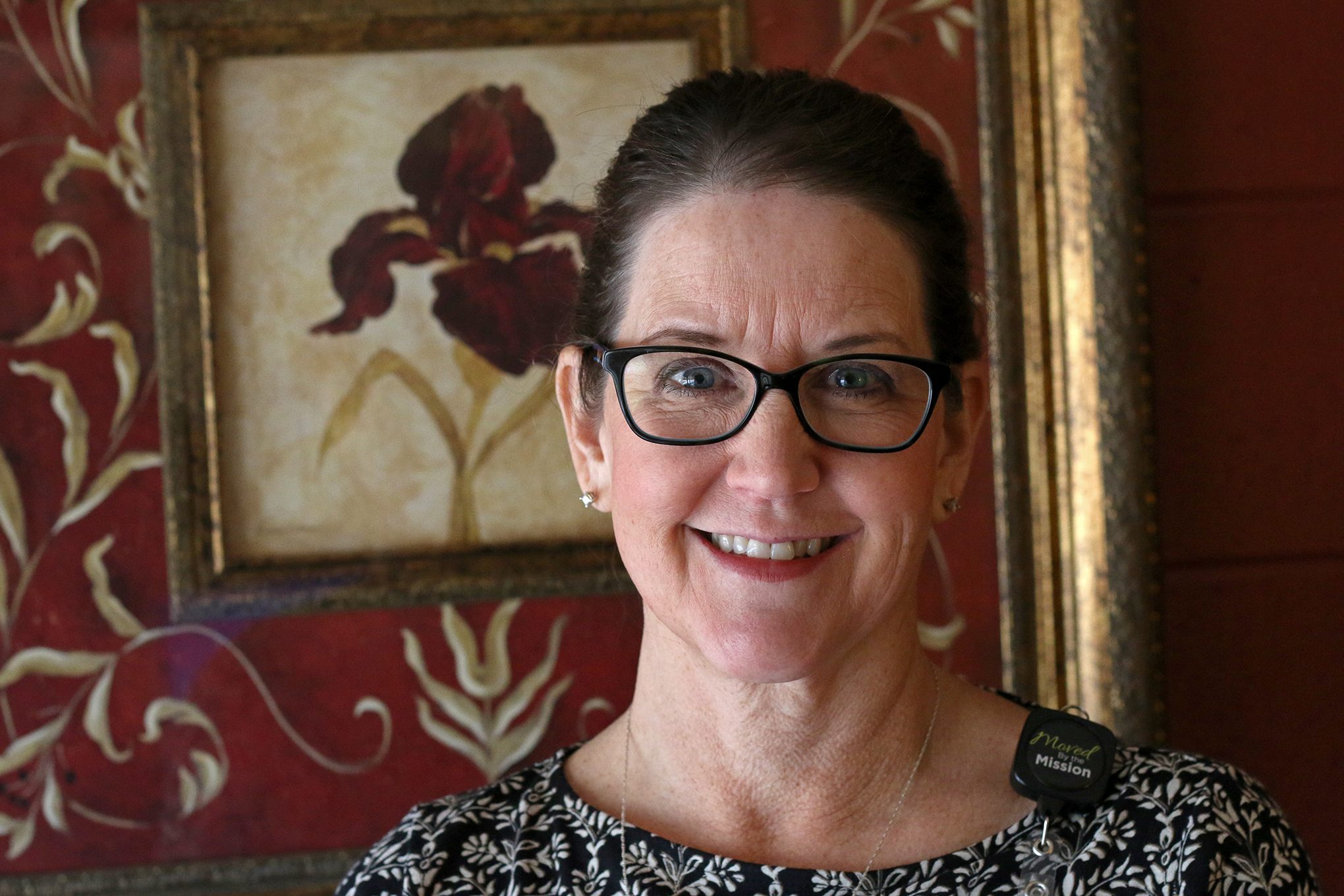
“We have people that present with 0.40 alcohol levels. I mean, almost half of their blood running through veins is alcohol and another person — if they had that kind of alcohol level — might die from it,” she said.
L.E. Phillips-Libertas offers a 30-day residential treatment program and outpatient services. But figures provided by the facility show most of those getting residential treatment have private insurance — though not all providers pay for room and board.
Generally, the state’s Medicaid insurance program for its poorest residents, known as BadgerCare, doesn’t pay for residential treatment. Conversely, in 2017, nearly 40 percent of those getting outpatient counseling at L.E. Phillips-Libertas were covered by BadgerCare.
In October 2018, Wisconsin got a waiver from the federal Centers for Medicare & Medicaid Services to begin moving more BadgerCare patients into short-term residential treatment programs, to help address the lack of treatment resources available to low-income individuals.
Even if a patient’s treatment is covered by BadgerCare, Simonson said state and federal reimbursement rates don’t cover the costs of services they provide. She said typically Medicaid only pays around 59 cents for every dollar spent on treatment.
She said L.E. Phillips-Libertas and its parent organization Hospital Sisters Health System are dedicated to a mission to provide treatment to those in need. But Simonson said the lagging reimbursement rates are one of the many reasons there aren’t more residential or inpatient treatment beds in the state.
“Because it doesn’t make a lot of money and typically, organizations that provide health care look at health care that can make a lot of money,” said Simonson. “Like, we don’t do procedures, right? We don’t do hip replacements, we’re not a cardiac unit. So, many health care organizations say we can’t take on a program that isn’t going to help our margin, our bottom line. And behavioral health is one of those service lines that either loses money or barely breaks even. So, to add it in … many health care organizations don’t.”
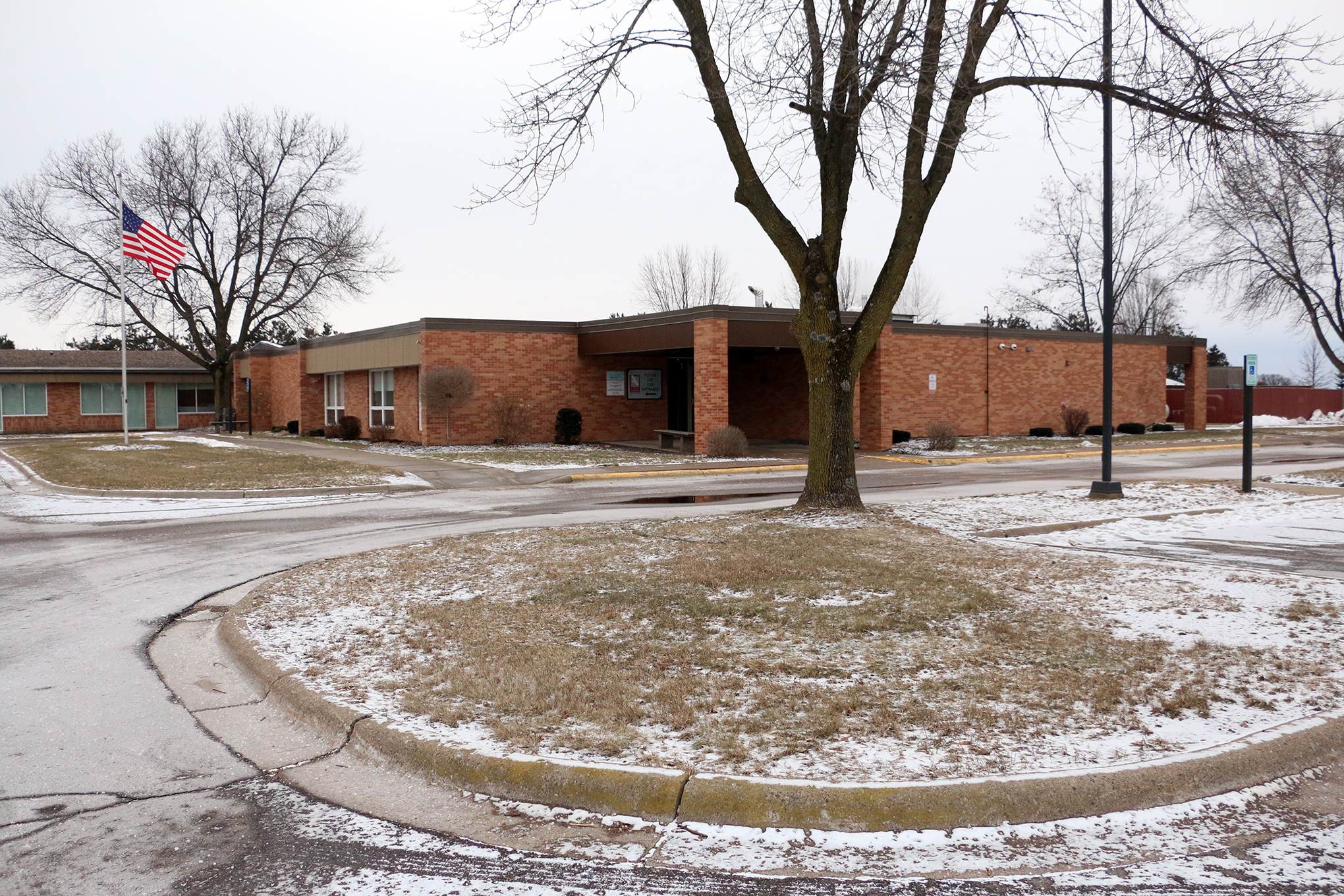
It Can Be Done
Despite the financial challenges associated with running comprehensive treatment programs, the Lac du Flambeau Band of Lake Superior Chippewa broke ground on an 18-bed treatment center called Gookomis Endaad in 2014.
[[{“fid”:”967806″,”view_mode”:”embed_landscape”,”fields”:{“alt”:”Patty Thompson, administrator at Gookomis Endaad “,”title”:”Patty Thompson, administrator at Gookomis Endaad “,”class”:”media-element file-embed-landscape media-wysiwyg-align-right”,”data-delta”:”4″,”format”:”embed_landscape”,”alignment”:”right”,”field_image_caption[und][0][value]”:”%3Cp%3EPatty%20Thompson%20is%20the%20administrator%20at%20the%20Gookomis%20Endaad%20treatment%20center%20in%20Lac%20du%20Flambeau.%20She%20was%20involved%20in%20the%20planning%20and%20building%26nbsp%3Bof%20northern%20Wisconsin’s%20newest%20residential%20treatment%20center.%20%3Cem%3ERich%20Kremer%2FWPR%3C%2Fem%3E%3C%2Fp%3E%0A”,”field_image_caption[und][0][format]”:”full_html”,”field_file_image_alt_text[und][0][value]”:”Patty Thompson, administrator at Gookomis Endaad “,”field_file_image_title_text[und][0][value]”:”Patty Thompson, administrator at Gookomis Endaad “},”type”:”media”,”field_deltas”:{“4”:{“alt”:”Patty Thompson, administrator at Gookomis Endaad “,”title”:”Patty Thompson, administrator at Gookomis Endaad “,”class”:”media-element file-embed-landscape media-wysiwyg-align-right”,”data-delta”:”4″,”format”:”embed_landscape”,”alignment”:”right”,”field_image_caption[und][0][value]”:”%3Cp%3EPatty%20Thompson%20is%20the%20administrator%20at%20the%20Gookomis%20Endaad%20treatment%20center%20in%20Lac%20du%20Flambeau.%20She%20was%20involved%20in%20the%20planning%20and%20building%26nbsp%3Bof%20northern%20Wisconsin’s%20newest%20residential%20treatment%20center.%20%3Cem%3ERich%20Kremer%2FWPR%3C%2Fem%3E%3C%2Fp%3E%0A”,”field_image_caption[und][0][format]”:”full_html”,”field_file_image_alt_text[und][0][value]”:”Patty Thompson, administrator at Gookomis Endaad “,”field_file_image_title_text[und][0][value]”:”Patty Thompson, administrator at Gookomis Endaad “}},”link_text”:false,”attributes”:{“alt”:”Patty Thompson, administrator at Gookomis Endaad “,”title”:”Patty Thompson, administrator at Gookomis Endaad “,”class”:”media-element file-embed-landscape media-wysiwyg-align-right”,”data-delta”:”4″}}]]Patricia Thompson, the center’s administrator, said the idea for the facility came after the tribal chairman declared a state of emergency the year before due to the threat of synthetic marijuana and other drugs. Gookomis Endaad treats clients, which are referred to as relatives by staff, for a minimum of 90 days. That’s more than twice the length of standard treatment programs in the state. Thompson said that’s because staff began noticing it took around 35 days for relatives to begin embracing what was being taught.
“They just start getting their heads wrapped around, ‘I’m in treatment, this is what is expected of me. I can start concentrating and practicing some of the concepts that we are teaching, some of the parenting skills, some of the anger therapy,’” said Thompson.
She said making Gookomis Endaad a reality cost millions of dollars, but she said the treatment center is financially viable partly because of hard work by staff to maximize reimbursement rates from federal, state and local sources. More importantly, Thompson said, it’s the right thing to do for people who need help.
“It can be done,” Thompson said. “This is not a project that any one or two people can do or even a dozen people can do. It takes a lot of people to do this.”
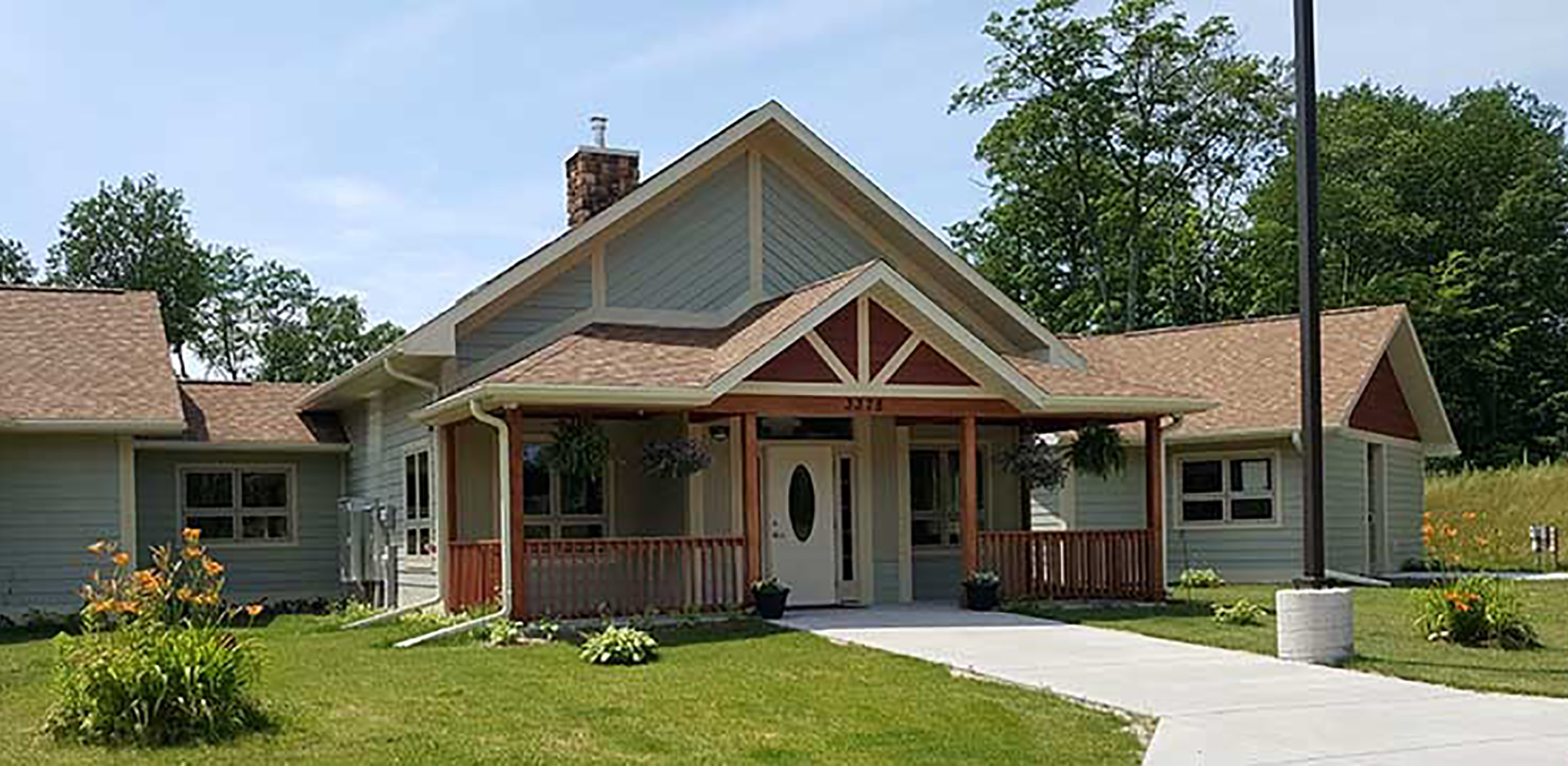
Learning About Yourself
Michael Maulson, of Lac du Flambeau, has struggled with alcohol for most of his life. He was arrested for drunken driving in 2018 and said he decided to seek help.
“It’s a lot more intense than I anticipated,” said Maulson. “I mean … it’s a mind, body and soul transformation. They get to your root cause of all the way back to your childhood what may have been your triggers to cause you to use or what you may think caused you to use. It helps you almost reset the whole way you think to be a better person from the inside out.”
Augustine Allen, who is also from Lac du Flambeau, said he has been abusing alcohol and narcotic painkillers for around 10 years. Allen said he decided to check himself into Gookomis Endaad. He has been in the treatment program for 120 days because counselors noticed he was holding back during group therapy sessions. Allen said he’s glad they called him on it and he strongly recommends treatment for people who want a way out of the cycle of addiction.
“It just definitely gets easier and you feel a lot better about yourself and you start noticing that you’re happier and you’re just more grateful for life,” Allen said.

If you or a loved one is struggling with alcoholism, call 1-800-662-HELP, a free, confidential, 24/7 treatment referral and information service for those facing mental and/or substance use disorders. You can also visit https://findtreatment.samhsa.gov/ to find treatment in your area.
Wisconsin Public Radio, © Copyright 2024, Board of Regents of the University of Wisconsin System and Wisconsin Educational Communications Board.
